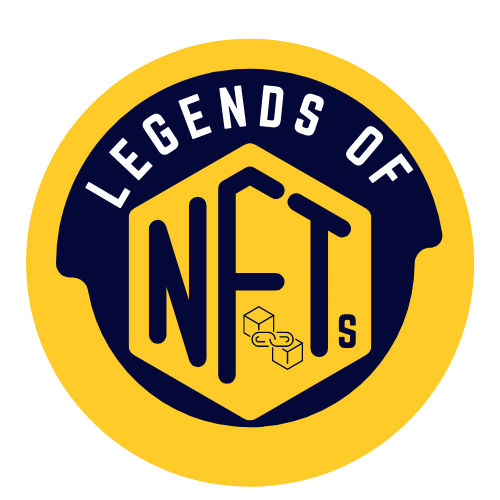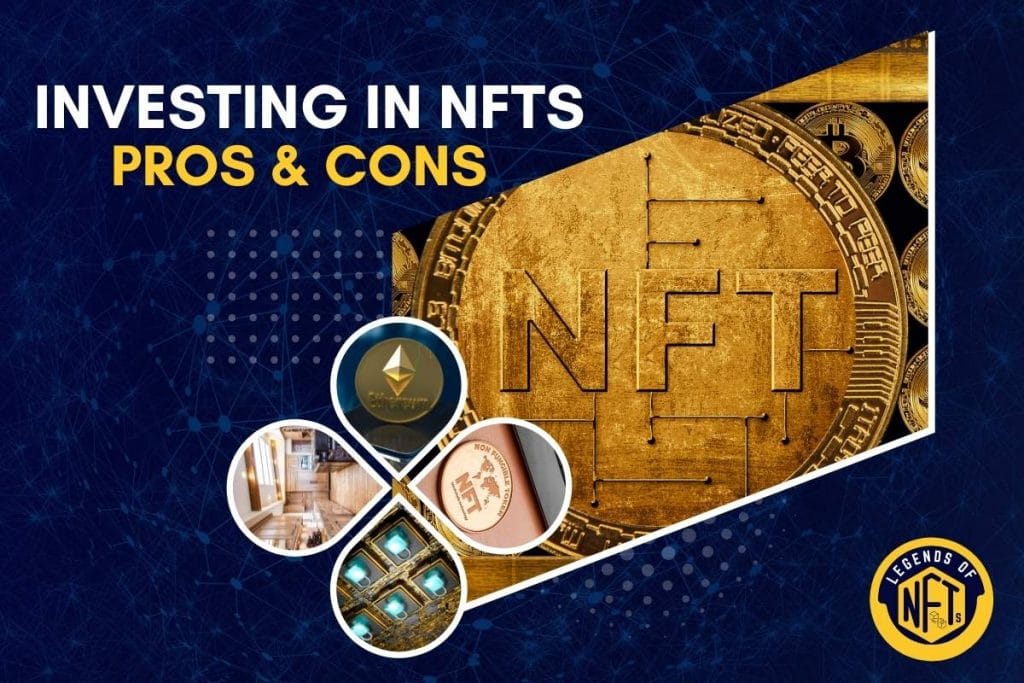As cryptocurrencies have continued to increase in value and popularity, so too has the interest in alternative methods of investment. One such method, non-fungible tokens (NFTs), has seen a recent surge in attention. But what are NFTs and how do they compare to traditional investment options? In this article we will explore different pros and cons of NFTs and how they compare to traditional investment vehicles.
What Are (NFTs) Non-Fungible Tokens?
Non-fungible tokens are a type of digital asset that represent unique, individual items. These tokens are not interchangeable and each one has its own distinct features. NFTs are created on blockchains, such as Ethereum, and can be used to represent anything from virtual assets to real-world objects.
Learn more about NFTs in our guide here.
Why Non-Fungible Tokens?
One of the main reasons for the surge in popularity of NFTs is the fact that they are non-fungible. This means that they can represent unique assets, such as artwork, real estate, or even a certain amount of cryptocurrency. This is in contrast to traditional investment options, which are all fungible.
Pros of Non-Fungible Tokens
NFTs Foster Marketplace Efficiency
One of the main benefits of NFTs is that they can help to create a more efficient marketplace. By allowing buyers and sellers to trade unique assets, NFTs reduce the need for third-party intermediaries. This can save both time and money for all involved in the transaction.
NFTs Are Easier to Trade Than Traditional Assets
Another benefit of NFTs is that they are easier to trade than traditional assets. This is due to the fact that they are digital and can be transferred quickly and easily from one party to another. This makes them ideal for trading online and can help to reduce the costs associated with traditional asset transactions.
They Can Be Used to Fractionalize Ownership of Physical Asset
NFTs can also be used to fractionalize ownership of physical assets. This means that investors can own a smaller portion of an asset, such as a painting or a piece of land, and still have all the benefits of full ownership. This can be helpful for investors who want to get exposure to certain types of assets but don’t have the funds to purchase them outright.
The Blockchain Technology Behind NFTs Is Very Safe
Another benefit of NFTs is that they are built on blockchain technology. This is a very secure and reliable platform that has been tested over many years. This makes it a safe option for storing and transferring valuable assets.
NFTs Can Provide Diversification Benefit to an Investment Portfolio
Another benefit of NFTs is that they can provide a diversification benefit to an investment portfolio. By owning different types of NFTs, investors can reduce their overall risk exposure. This can be helpful for investors who want to minimise the impact of any potential market downturns.
Cons of Non-Fungible Tokens
NFTs Are Illiquid and Volatile
One of the main drawbacks of NFTs is that they are illiquid and volatile. This means that they can be difficult to trade and that their prices can fluctuate significantly from day to day. This can be a risky investment option for those who are not prepared for the volatility.
They Are Not as Well-Known as Traditional Investments
Another downside of NFTs is that they are not as well-known as traditional investments. This means that there is a greater risk of investing in them without fully understanding the risks and rewards involved. It is therefore important to do your research before investing in NFTs.
NFTs May Not Have a Clear Use Case Yet
Another downside of NFTs is that they may not have a clear use case yet. This means that it is unclear how they will be used in the future and what their real-world applications will be. This could lead to volatility in the price of NFTs as investors try to figure out their value.
NFTs Do Not Generate Income
Another downside of NFTs is that they do not generate income. This means that investors will not be able to earn a return on their investment from holding NFTs. This could limit the appeal of NFTs to those who are looking for a passive income stream.
NFTs Can Be Used To Perpetuate Fraud
Another downside of NFTs is that they can be used to perpetrate fraud. This means that scammers can use NFTs to scam investors out of their money. It is therefore important to do your research before investing in any NFTs.
NFTs Can Harm the Environment
NFTs can also harm the environment. This is because they require a lot of energy to produce and can have a negative impact on the planet. This is something that investors need to be aware of before investing in NFTs.
The Future of NFT Investment
NFTs have a lot of potential and could be a great investment option for those who are looking for something new and exciting. However, they are also risky and may not be suitable for everyone.
Learn More about Possible Practical Uses of NFTs here.
Conclusion
So, are non-fungible tokens a good investment? The answer is not so simple. On the one hand, they offer unique opportunities that aren’t available with traditional investments. They also have the potential to appreciate in value as more people adopt them. However, there is always risk involved with any investment, and it’s important to do your own research before investing in any new technology. Do you think non-fungible tokens are a good investment? Why or why not?





